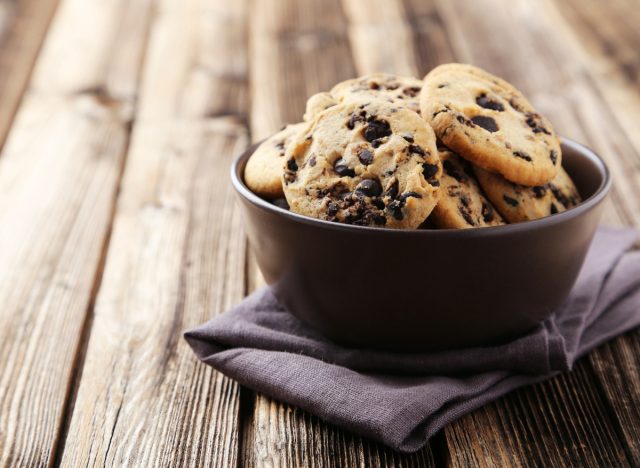Joint pain, swelling, and stiffness, the hallmarks of arthritis, can really slow you down. Unfortunately, more than 58 million American adults experience some type of doctor-diagnosed arthritis that limits their activities.
When you experience a reduced range of motion that comes with arthritis—you know, sore knees that make running impossible or stiff shoulders that cause you to sink not swim—it's easy to become inactive and gain weight, which can even make symptoms worse.
Anti-inflammatory drugs are commonly prescribed to arthritis patients to offer instant relief, but there's something else you can try that will likely benefit your joints and your overall health: changing your diet to eliminate eating habits associated with causing the inflammation throughout your body that exacerbates arthritis symptoms.
While there aren't many large-scale studies specifically on diet and arthritis, research has shown that certain types of foods can trigger chronic inflammation in the body over time. This low-grade inflammation, an immune response that's constantly engaged, can damage healthy cells and organs leading to diseases like arthritis as well as diabetes and heart disease.
Don't go looking for a specific food that will decrease your arthritis pain, however. Look at your pattern of eating, suggests Elaine Husni, MD, MPH, director of the Arthritis and Musculoskeletal Center at Cleveland Clinic.
"We want to encourage well-balanced, nutrient-dense food groups," says Dr. Husni, who is also a medical board member of the Arthritis Foundation. In other words, eat a variety of plant-based foods and work on eliminating these inflammation-producing, arthritis-promoting eating habits below.
Avoid ultra-processed foods.

Ultra-processed foods that last for weeks are typically loaded with inflammation-producing preservatives. Think chips, cookies, baked goods, and other highly processed packaged foods. Avoid them. Instead, eat food that rots. "I tell people if you have food that's on your counter that rots in a couple of days, that's probably what you want to eat," says Dr. Husni. Of course, eat it before it rots.
Avoid the drive-thru habit.

To significantly reduce your consumption of inflammatory foods, think fresh, not fried. "Limit the amount of fast-foods. Limit the amount of concentrated sweets, but most importantly eat natural, plant-based foods," says Dr. Husni.
Avoid this fatty fabit.

By now you know that fat isn't the dietary demon that we once believed it to be back during the low-fat diet craze of the late '80s. But that doesn't mean all fats are open for unbridled consumption. Trans fats; saturated fats, which come from red meat and whole fat dairy products; and omega-6 polyunsaturated fats from corn oils found in lots of packaged foods all contribute to chronic intestinal inflammation, according to a recent review of studies in Frontiers of Immunology.
Another study looked specifically at the potential effect of saturated fat in the diet on osteoarthritis. In that experiment reported in Scientific Reports, researchers studied two groups of rats for 16 weeks. One group was fed a corn starch diet, the other a diet of simple carbohydrates and saturated fats from butter, palm oil, or animal fat. The researcher found that the diet containing 20% saturated fat produced saturated fat deposits in the knee joints of the rats that weakened the cartilage and increased inflammation, both markers of osteoarthritis.
Avoid having a soda with lunch.

While you're well aware that sugar-sweetened beverages (SSB) can cause weight gain and can put you at risk for type 2 diabetes, you may not be aware of another potential danger of drinking too many sweet drinks: increased risk of rheumatoid arthritis.
Two large, long-term observational studies that followed 186,900 women linked the drink to arthritis. Researchers reporting in the American Journal of Clinical Nutrition found that women who drank one or more servings of sugar-sweetened soda (but not diet soda) every day had a 63% increased risk of developing rheumatoid arthritis compared to those who drank no soda or less than one serving daily.
Avoid bar hopping and booze cruising.

In other words, avoid a drinking habit. Research suggests that alcohol disrupts the balance of "good" and "bad" bacteria in the gut and causes inflammation in the intestines. Heavy alcohol consumption may also damage the gut tissue, making it permeable or "leaky" allowing inflammation-producing toxins to escape. Excessive drinking also reduces the gut's ability to extract nutrients from food, according to the National Institute on Alcohol Abuse and Alcoholism.
And there's another form of inflammatory arthritis that's linked to high alcohol consumption: gout. The painful flareup that typically targets the big toe joint is the result of too much uric acid in the body when the body breaks down alcohol. Hard liquor is a trigger, but so is beer which is high in purines that can significantly raise uric acid levels.
No comments:
Post a Comment